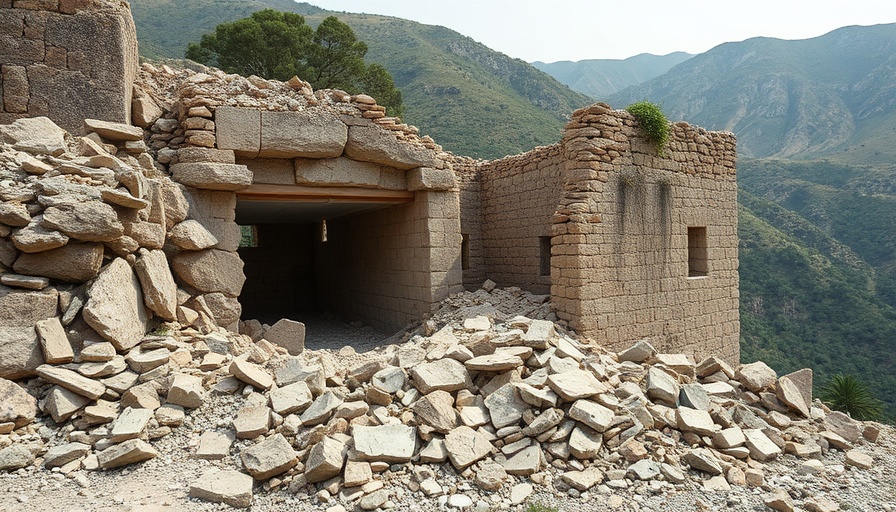
Understanding the Aftermath of the Earthquake in Afghanistan
On a recent day in Eastern Afghanistan, chaos erupted as a magnitude six earthquake struck, leaving devastation in its wake. As rescuers and searchers sift through the rubble, the world watches closely to grasp the severity of the situation. This disaster not only raises immediate concerns about lives lost and displaced but also highlights the humanitarian challenges in a region already grappling with crises.
In 'Searchers Scavenge Rubble In Eastern Afghanistan For Survivors After Magnitude Six Earthquake,' the discussion revolves around the critical rescue efforts following a devastating earthquake, prompting a deeper exploration into the humanitarian implications.
What Happened?
The earthquake that rattled Afghanistan was not just a natural disaster; it was a reminder of the country’s precarious position regarding its infrastructure and emergency response. Reports confirm that many buildings collapsed, trapping residents beneath debris. Search and rescue efforts have begun, with teams working tirelessly to locate survivors and assess damages. Such efforts are challenging, given the rugged terrain and the lack of resources in less developed regions.
The Emotional Toll of Natural Disasters
While the physical destruction is apparent, one must also recognize the emotional and psychological impacts of such tragedies. Communities affected by earthquakes face not only the loss of homes and livelihoods but also the deep-seated trauma that follows. Families are torn apart, and the social fabric is often irreparably damaged. Local psychologists emphasize the importance of addressing mental health needs during recovery efforts, yet resources are scarce.
Insights into Humanitarian Aid Challenges
The earthquake also underscores the challenges of providing effective humanitarian aid. Afghan organizations, alongside international groups, have mobilized to deliver assistance. However, logistical challenges, security concerns, and geopolitical tensions complicate these efforts. With varying degrees of access to the affected areas, help is trickling in at a slower pace than needed, intensifying the need for immediate relief.
The Global Community Responds
As news of this disaster unfolds, nations around the globe are watching and responding through pledges of support and aid. Countries often send rescue teams and provide financial assistance in the aftermath of natural disasters. The global solidarity that emerges in the wake of such tragedies demonstrates a universal commitment to humanitarianism. However, long-term recovery efforts will require individual countries to strategize effectively on how to rebuild both infrastructure and trust within communities.
Lessons Learned from Past Disasters
This earthquake offers another chapter in a series of lessons about preparedness in natural disasters. Historical events, like the 2010 Haiti earthquake, show how infrastructure planning, community training, and local involvement can make a significant difference in survival and recovery rates. Afghanistan’s ongoing strife has hindered many of these developments, leaving its people vulnerable.
International Aid and Its Importance
In the aftermath of major earthquakes, international attention must focus on two fronts: immediate relief and long-term development. Quick relief helps save lives, but sustainable recovery relies on rebuilding stronger infrastructures and supporting local economies. International organizations must prioritize funding for education, healthcare, and community resilience, enabling citizens to withstand future disasters.
A Call to Action for Global Solidarity
As we watch the rescue efforts unfold, it's crucial to remember that recovery is a collective effort. Awareness is but the first step; we can all contribute to initiatives that assist those affected by such disasters. Whether donating to reputable organizations or advocating for heightened international humanitarian focus, individuals can play a part in the transformative journey toward recovery and rebuilding.
 Add Element
Add Element  Add Row
Add Row 



Write A Comment